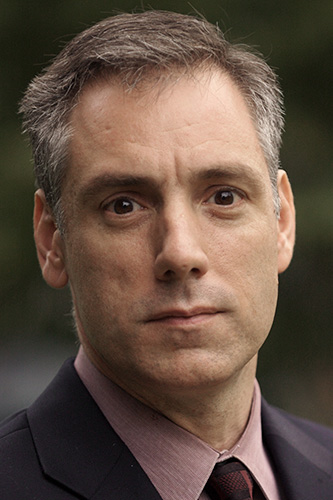

 A recent article in the MIT Technology Review described the benefits that remote learning can bring to preschoolers. The article described a study by the MacArthur Foundation that has not yet been peer-reviewed. The research described the results of bringing preschool to Syrian refugees. more
A recent article in the MIT Technology Review described the benefits that remote learning can bring to preschoolers. The article described a study by the MacArthur Foundation that has not yet been peer-reviewed. The research described the results of bringing preschool to Syrian refugees. more
 As we advance into 2024, the global landscape remains etched with the marks of a tumultuous previous year. The world economy grappled with challenges on multiple fronts in 2023, from surging inflation rates across significant economies to geopolitical conflicts and instability fostering a climate of uncertainty. Compounded by ongoing disruptions in global supply chains, these factors painted a rather somber picture of the economic outlook for many sectors. more
As we advance into 2024, the global landscape remains etched with the marks of a tumultuous previous year. The world economy grappled with challenges on multiple fronts in 2023, from surging inflation rates across significant economies to geopolitical conflicts and instability fostering a climate of uncertainty. Compounded by ongoing disruptions in global supply chains, these factors painted a rather somber picture of the economic outlook for many sectors. more
 On 5 March 2024, the Grand Chamber of the Court of Justice of the European Union handed down a landmark judgment that was years in the making. The case is formally known as C 588/21 P, Public.Resource.Org and Right to Know v Commission. The Judgment of the Court is identified as ECLI:EU:C:2024:201. more
On 5 March 2024, the Grand Chamber of the Court of Justice of the European Union handed down a landmark judgment that was years in the making. The case is formally known as C 588/21 P, Public.Resource.Org and Right to Know v Commission. The Judgment of the Court is identified as ECLI:EU:C:2024:201. more
 There have been a number of occasions when the Internet Engineering Task Force (IETF) has made a principled decision upholding users' expectations of privacy in their use of IETF-standardised technologies. (Either that, or they were applying their own somewhat liberal collective bias and to the technologies they were working on!) The first major such incident that I can recall is the IETF's response to the US CALEA measures. more
There have been a number of occasions when the Internet Engineering Task Force (IETF) has made a principled decision upholding users' expectations of privacy in their use of IETF-standardised technologies. (Either that, or they were applying their own somewhat liberal collective bias and to the technologies they were working on!) The first major such incident that I can recall is the IETF's response to the US CALEA measures. more
 In his January 12 SpaceX update, Elon Musk said the biggest goal for Starlink from a technical standpoint is to get the mean latency below 20 ms. He expanded by saying that given the speed of light, 8 ms is the absolute minimum latency for a satellite at 550 km. He believes they can optimize terrestrial and inter-satellite links, and minimize queueing delays and dropped packets, to recude the the rest of the time to below 10 ms. more
In his January 12 SpaceX update, Elon Musk said the biggest goal for Starlink from a technical standpoint is to get the mean latency below 20 ms. He expanded by saying that given the speed of light, 8 ms is the absolute minimum latency for a satellite at 550 km. He believes they can optimize terrestrial and inter-satellite links, and minimize queueing delays and dropped packets, to recude the the rest of the time to below 10 ms. more
 I recently had the opportunity to speak on a podcast with Dave Bittner at CyberWire to discuss how .AI is giving cybercriminals a new avenue to take advantage of some of the largest companies in the world based on research findings from CSC's 2023 Domain Security Report. Below is a summary of the key points discussed during this podcast. more
I recently had the opportunity to speak on a podcast with Dave Bittner at CyberWire to discuss how .AI is giving cybercriminals a new avenue to take advantage of some of the largest companies in the world based on research findings from CSC's 2023 Domain Security Report. Below is a summary of the key points discussed during this podcast. more
 There have been a number of occasions when the Internet Engineering Task Force (IETF) has made a principled decision upholding users' expectations of privacy in their use of IETF-standardised technologies. (Either that, or they were applying their own somewhat liberal collective bias to the technologies they were working on!) The first major such incident that I can recall is the IETF's response to the US CALEA measures. more
There have been a number of occasions when the Internet Engineering Task Force (IETF) has made a principled decision upholding users' expectations of privacy in their use of IETF-standardised technologies. (Either that, or they were applying their own somewhat liberal collective bias to the technologies they were working on!) The first major such incident that I can recall is the IETF's response to the US CALEA measures. more
 Last November, ICANN launched a ticketing system for those interested in obtaining domain name registration data ("WHOIS"). Titled Registration Data Request Service, or RDRS, the portal aims to direct requests for WHOIS data to participating registrars, who then decide whether or not to disclose the data. more
Last November, ICANN launched a ticketing system for those interested in obtaining domain name registration data ("WHOIS"). Titled Registration Data Request Service, or RDRS, the portal aims to direct requests for WHOIS data to participating registrars, who then decide whether or not to disclose the data. more
 In the last year, the company that runs the Turkish Domain Registry has made many changes to how the extension is run. First, it has a brand new portal for registrars to interact with, liberalizing the extension .COM.TR, so registrants are no longer required to meet local presence rules, and it has launched a new dispute process to help brand holders recover domain names. more
In the last year, the company that runs the Turkish Domain Registry has made many changes to how the extension is run. First, it has a brand new portal for registrars to interact with, liberalizing the extension .COM.TR, so registrants are no longer required to meet local presence rules, and it has launched a new dispute process to help brand holders recover domain names. more
 As was the case in the US during World War II, civilian volunteers are making important contributions to the Ukrainian war effort. On February 8, 2022, the first truckload of Starlink terminals arrived in Kyiv. A week later they were being used. By April 2022, there were 5,000 terminals in Ukraine, and 42,000 as of April 2023. (At this point, SpaceX and Ukraine have gone silent. Neither ChatGPT4, Gemini, Copilot, Perplexity, nor I could not find a current terminal count). more
As was the case in the US during World War II, civilian volunteers are making important contributions to the Ukrainian war effort. On February 8, 2022, the first truckload of Starlink terminals arrived in Kyiv. A week later they were being used. By April 2022, there were 5,000 terminals in Ukraine, and 42,000 as of April 2023. (At this point, SpaceX and Ukraine have gone silent. Neither ChatGPT4, Gemini, Copilot, Perplexity, nor I could not find a current terminal count). more
 Satellites make it possible for governments to provide essential services, such as national defense, navigation, and weather forecasting. Private ventures use satellites to offer highly desired services that include video program distribution, telecommunications, and Internet access. The Russian launch of a satellite, with nuclear power and the likely ability to disable satellites, underscores how satellites are quite vulnerable to both natural and manmade ruin. more
Satellites make it possible for governments to provide essential services, such as national defense, navigation, and weather forecasting. Private ventures use satellites to offer highly desired services that include video program distribution, telecommunications, and Internet access. The Russian launch of a satellite, with nuclear power and the likely ability to disable satellites, underscores how satellites are quite vulnerable to both natural and manmade ruin. more
 Last month, the Russian state-sponsored hacking group "Midnight Blizzard" gained access to the email accounts of Microsoft leadership, even exfiltrating documents and messages. The group reportedly used a simple brute-force style attack to access a forgotten test account and then exploited the permissions on that account to access the emails of employees in the cybersecurity and legal teams. more
Last month, the Russian state-sponsored hacking group "Midnight Blizzard" gained access to the email accounts of Microsoft leadership, even exfiltrating documents and messages. The group reportedly used a simple brute-force style attack to access a forgotten test account and then exploited the permissions on that account to access the emails of employees in the cybersecurity and legal teams. more
 On February 12–13, 2024, the first round of the final consultations for a Global Digital Compact (GDC) took place online and offline at the UN Headquarters in New York City. Around 50 governments and 50 speakers from non-governmental institutions took the floor. It was not really a dialog; it was a formal presentation of three-minute statements. more
On February 12–13, 2024, the first round of the final consultations for a Global Digital Compact (GDC) took place online and offline at the UN Headquarters in New York City. Around 50 governments and 50 speakers from non-governmental institutions took the floor. It was not really a dialog; it was a formal presentation of three-minute statements. more
 In the February 13th edition of the Wall Street Journal, Professor Thomas W. Hazlett offers a breathless endorsement of market concentration with the T-Mobile acquisition of Sprint, his go-to example. Apparently, mergers and acquisitions benefit consumers because they enhance competition and generate all sorts of positive outcomes that could not possibly have occurred but for the reduction in the number of industry players. more
In the February 13th edition of the Wall Street Journal, Professor Thomas W. Hazlett offers a breathless endorsement of market concentration with the T-Mobile acquisition of Sprint, his go-to example. Apparently, mergers and acquisitions benefit consumers because they enhance competition and generate all sorts of positive outcomes that could not possibly have occurred but for the reduction in the number of industry players. more
 An IPv4 address identifies your connection to the online world. IP addresses make it possible to host websites, manage secure communication, and engage in countless other essential, internet-related activities. Typically, when migrating to a new cloud provider, a business has only one path: lease the provider's IP addresses. But what if a business already has a block of IP addresses? more
An IPv4 address identifies your connection to the online world. IP addresses make it possible to host websites, manage secure communication, and engage in countless other essential, internet-related activities. Typically, when migrating to a new cloud provider, a business has only one path: lease the provider's IP addresses. But what if a business already has a block of IP addresses? more
Sponsored byRadix

Sponsored byDNIB.com

Sponsored byWhoisXML API

Sponsored byVerisign

Sponsored byVerisign

Sponsored byIPv4.Global

Sponsored byCSC
